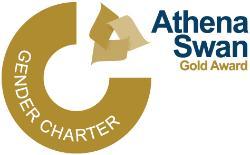Athena SWAN in SHW
Early career academic (ECA) issues, aspirations and development

Chairs
Marissa Smith and Andreas Brunklaus
Aim
This group focuses on monitoring and addressing issues affecting representation, progression and success of all early career academics within the School. We work closely with the SHW Athena Swan mentoring arrangements working group and have held a number of joint meetings with this group.
What is an ECA?
There is no consensus on the definition of an early career academic (ECA) and the term is applied to different groups of academic staff across the university. It is mostly used to refer to research associates, fellows or postdoctoral researchers, but is sometimes expanded to include PhD students. Please note that ECA replaces the previously used Early Career Researcher (ECR).
For the purposes of this working group, we use a broader definition of ECAs, which includes Grades 5–8 research staff, often on a fixed-term/open-ended contract with a specified funding end date.
Activities/achievements
Since the creation of the groups in 2014, the Athena Swan ECA and ECA forum have worked closely to identify needs, concerns and career aspirations for ECAs. In 2021 the AS ECA group and ECA forum merged to represent and support all ECAs in SHW more effectively.
The first collaborative project between the ECA forum and AS ECA working group in 2014 was a feedback exercise with ECAs to identify their areas of concern. Three main themes were identified; fixed term contracts, lack of progression, and the pivotal role of support. These three themes constitute a core part of our current Terms of Reference and initiatives undertaken by the working group.
Building further on the feedback exercise, semi-structured interviews were conducted with volunteers from the SHW ECA cohort to discuss their career trajectories. This in-depth work aimed to identify specific mechanisms within SHW that pose barriers or offer support to ECA career progression by drawing on specific cases of ECAs who have progressed or left the school/University, either due to lack of advancement options or for other reasons.
Additionally, we are working closely with the promotions working group to facilitate/reduce barriers to promotions for current and future ECAs (focus on advancement from G6 to G7). This includes collaboration to organise and evaluate a career development workshop for ECAs in 2021 to improve insights into career planning and progression.
We have also consulted with SHW ECAs through focus groups to consider the possibility of informal reviews with non-line managing members of the University of Glasgow as an additional form of support to ECA progression. This initiative was then followed by the introduction of the SHW-wide mentoring scheme, where Grade 7–8 teaching and research staff act as mentors to Grade 6–7 ECAs.
In addition, the group continues to recognise the importance of grant writing as a professional skill and are developing ECA specific grant funding and grant writing groups.
The group has also arranged for the school to purchase additional Principal Investigator and Leadership training courses specifically for ECAs, as the wider university scheme had a long waiting list. If you want to find out more about existing leadership training provision, please access the Employee and Organisational Development website. If you would like to enquire about any of the additional courses on offer this academic year, please email shw-admin@glasgow.ac.uk.
Throughout the pandemic, we worked closely with the maternity/paternity and staff promotions working groups to create a COVID response support and guidance package to ensure current and future ECAs are not disproportionately disadvantaged by the pandemic.
In addition to our SHW-wide ECA mailing list, we are setting up an ECA Teams channel to facilitate networking, staff information sharing, including news about teaching and/or research supervision opportunities available to ECAs across the School.
Future plans
In liaison with the Athena Swan mentoring arrangements and staff promotions, reward and recognition working groups, we are continuing work to improve ECA uptake of mentoring and the promotion "myth busting" campaign via inductions, P&DR, line-management, the annual research day, mentoring and promotion workshops. We will also design and conduct an ECA-specific survey to identify how to improve the P&DR experience, to clarify the importance of PhD studies for academic career progression and identify and address any barriers to CPD. Further, we will identify ECA concerns and issues and work with the School to mitigate the impact of COVID-19 on ECAs.


